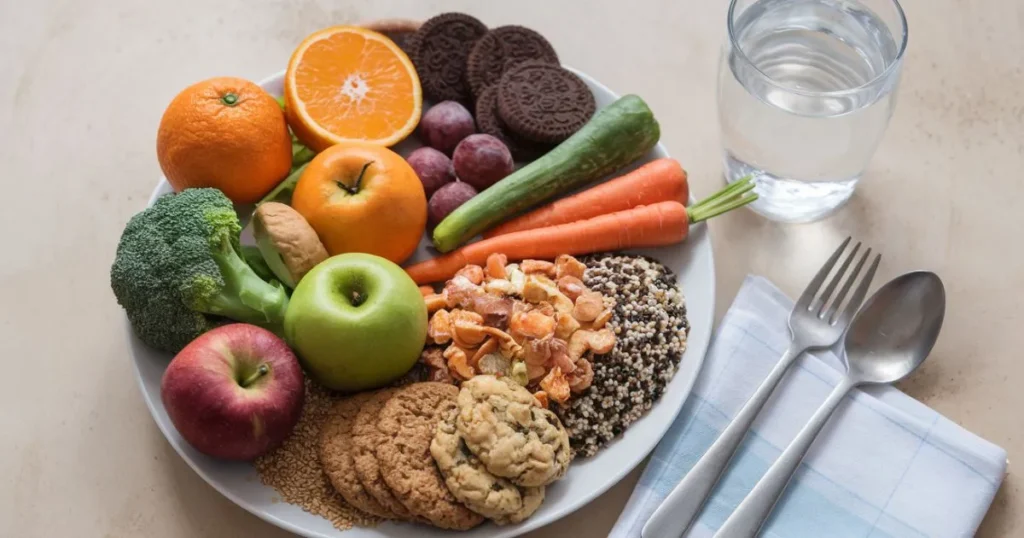
Cancer treatment is challenging not only for the mind but also for the body. The journey through chemotherapy, radiation, and other therapies demands a strategic approach to health. One powerful ally during this time is nutrition. A well-planned diet can help manage treatment side effects, boost energy, and support immune function, making a tough experience more bearable. This guide will provide essential insights into dietary choices, supplements, and lifestyle adjustments that support resilience during treatment.
How Does Cancer Treatment Affect Your Diet?
Cancer treatments like chemotherapy and radiation affect everyone differently, yet many patients experience common symptoms, including nausea, appetite loss, and changes in taste. Treatments can trigger side effects like constipation, diarrhea, and fatigue, making food less appealing and potentially impacting weight and nutritional balance. Each cancer type, from blood to pancreatic cancer, comes with unique dietary challenges. Understanding these can help patients make food choices that best support their body’s needs.
Why Is Your Diet Important During Cancer Treatment?
Nutrition is more than just eating; it’s about building strength and resilience. During cancer treatment, a balanced diet helps stabilize weight, steady energy levels, and manage inflammation. From protein to essential fats and vitamins, each component contributes to better health, muscle tone, and a bolstered immune system. This support is crucial, as a resilient immune system can better combat the toll of intensive treatments and reduce the risk of complications. You may want to Read: Research 2024: WellHealthOrganic.Com Understanding Vegetarian Protein Sources
Foods to Add to Your Diet During Cancer Treatment
Not all foods offer the same benefits during cancer treatment. Here are some powerhouse options to consider:
- Plant-Based Proteins: Beans, legumes, nuts, seeds, and vegetables are rich in vitamins and minerals that fuel the body. Plant proteins help repair tissues without adding excessive fats.
- Healthy Fats: Sources like avocados, olive oil, and walnuts contain omega-3 fatty acids, which reduce inflammation and protect cardiovascular health.
- Complex Carbohydrates: Whole grains, oats, and bran provide fiber, which aids digestion and maintains gut health. High-fiber carbs also help sustain energy levels.
- Vitamins and Minerals: Nutrients such as vitamin D, magnesium, and calcium support immune function and aid in cellular repair. Fortified foods like dairy, orange juice, and leafy greens are excellent choices.
These foods create a balanced diet that enhances energy, improves digestion, and supports overall well-being.
Should You Take Supplements During Cancer Treatment?
Supplements can be beneficial for patients struggling to meet their nutritional needs through food alone, particularly if side effects reduce appetite or cause nutrient loss. For instance, vitamin D, often deficient in cancer patients, supports immunity and bone health. However, always consult a dietitian or oncologist before starting supplements to avoid conflicts with treatment and ensure they’re appropriate for your health needs.
Managing Cancer Treatment Side Effects Through Diet
A well-adjusted diet can alleviate many uncomfortable side effects:
- Appetite Loss: Opt for small, nutrient-rich meals or snacks throughout the day rather than three large meals.
- Constipation: Increase fiber intake with foods like vegetables and legumes, and drink plenty of water.
- Diarrhea: Include foods rich in potassium and sodium, such as bananas and broth, to replenish lost nutrients.
- Nausea: Ginger and peppermint can ease nausea, and small bites of citrus fruit may help as well.
- Loss of Taste: Experiment with spices and herbs to add flavor and make meals more enjoyable.
Foods to Avoid During Cancer Treatment
Cancer treatment can weaken the immune system, making the body more susceptible to infections. Avoiding certain foods can help reduce the risk of foodborne illness and inflammation:
- Raw or Underprepared Foods: Steer clear of sushi, rare meats, and unwashed produce.
- Processed Foods: Minimize intake of refined sugars, processed snacks, and fried foods, as these can increase inflammation.
- Dairy Products: Unpasteurized dairy can harbor bacteria that pose a health risk to immunocompromised individuals.
A cautious approach to food safety is critical to reducing the risk of infections during treatment.
Planning a Balanced Diet During Cancer Treatment
Dietitians specializing in oncology nutrition can be invaluable partners in navigating dietary needs during treatment. They can help patients craft practical meal plans that provide necessary nutrients without overwhelming the body. For example, busy individuals might consider pre-prepared healthy meals or easy-to-cook options, while those on a budget can find affordable, nutritious foods like beans and frozen vegetables. You may want to Read: Wellhealthorganic.com: Morning Coffee Tips With No Side Effect
Ways to Strengthen the Immune System During Cancer Treatment

Cancer and its treatments can weaken the immune system, making it crucial to adopt habits that promote immunity. Here are five ways to fortify your immune health:
- Eat a Balanced Diet: Nutrients from a variety of whole foods strengthen immunity. For instance, vitamin C from citrus fruits boosts white blood cells, while vitamin A in carrots enhances cell defense.
- Stay Active: Exercise stimulates immune cells and helps reduce stress, which can otherwise compromise immune function. Engage in moderate activities, such as walking or light yoga, that suit your energy levels and do not strain the body.
- Prioritize Sleep: Quality sleep allows the body to repair and produce proteins that defend against infections. Establish a consistent sleep routine and create a relaxing environment to improve rest quality.
- Manage Stress: High-stress levels can undermine immune health, making stress management crucial. Techniques such as meditation, breathing exercises, and spending time in nature can help keep stress in check.
- Stay Hydrated: Hydration is often overlooked, but water supports the mucus membranes that block pathogens. Aim to drink water throughout the day, or infuse it with lemon or cucumber if you prefer flavored options.
Additional Advice for Immune Health
Lifestyle adjustments can make a big difference in immunity. Here are two essential considerations:
- Avoid Smoking: Smoking can harm the lungs and other organs, lowering immunity. For those with cancer, avoiding both smoking and secondhand smoke can support better lung and immune health.
- Limit Alcohol Intake: Excessive alcohol disrupts immune cell function. Moderation is key—one drink per day for women and two for men is generally considered safe.
In addition to these steps, maintaining good hygiene and staying current on vaccinations are essential for reducing the risk of illness.
Conclusion
A cancer diagnosis is life-altering, yet a proactive approach to nutrition and lifestyle can ease the path to recovery. By incorporating nutrient-dense foods, staying active, managing stress, and focusing on immune health, patients can improve their quality of life and support their body’s resilience through treatment. Small, consistent efforts from a balanced meal to a peaceful night’s sleep contribute significantly to well-being during this challenging time.
While these recommendations serve as a guide, every patient’s journey is unique, and individual needs may vary. Partnering with healthcare professionals ensures a safe, tailored approach to managing cancer treatment. You may want to Read: 5 Benefits of Using a Term Insurance Calculator
FAQs
1. How can I boost my immune system for cancer?
Boosting immunity during cancer involves eating nutrient-rich foods, exercising regularly, managing stress, staying hydrated, and getting quality sleep. These steps support your body’s defense against infections and help you stay strong through treatment.
2. What is the best immune booster for cancer patients?
A balanced diet rich in antioxidants (like vitamins C and E), healthy fats, and protein. Berries, leafy greens, nuts, and fish support immunity, but it’s essential to consult with your doctor about supplements.
3. How to increase your chances of beating cancer?
Combining medical treatment with a healthy lifestyle is key. Eat well, stay active, avoid tobacco, and keep stress in check. Staying positive and building a strong support system also helps maintain resilience.
4. What are the top 5 cancer-fighting foods?
Berries, broccoli, garlic, green tea, and tomatoes are known for their cancer-fighting properties due to high levels of antioxidants, fiber, and anti-inflammatory compounds.
5. What kills cancer cells?
Cancer cells are targeted primarily through treatments like chemotherapy, radiation, and immunotherapy. Certain natural compounds, like those in green tea and turmeric, may support treatment, but they’re not substitutes for medical care.
6. What helps cancer cells grow?
Cancer cells can thrive on excess sugar, chronic inflammation, and stress. Maintaining a balanced diet, avoiding processed foods, and managing stress can help create an environment that’s less conducive to cancer growth.

Stay updated with the latest news and trending topics on my blogging website. From breaking stories to in-depth analyses, I bring you the most relevant updates concisely and engagingly!




